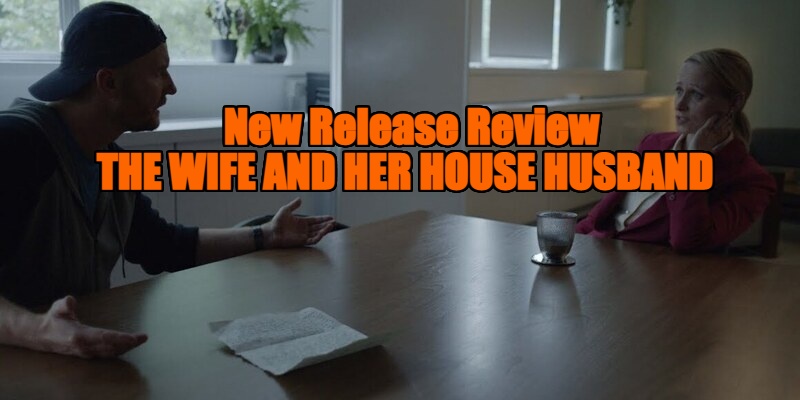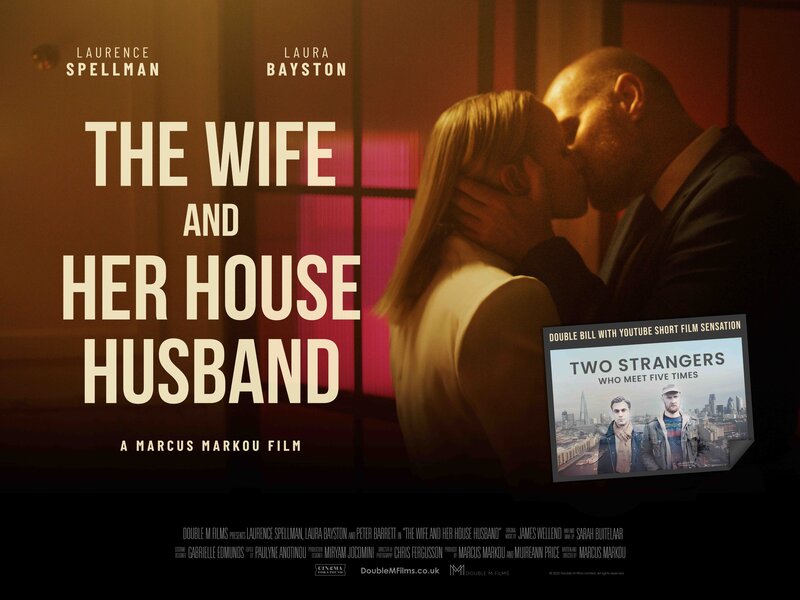
Review by
Benjamin Poole
Directed by: Marcus Markou
Starring: Laura Bayston, Laurence Spellman, Alice Marshall,
Farshid Rokey, Peter Barrett

It's the "'til death do us part" element (and especially that insouciantly
contracted preposition) which I think would do it for me: the phrase
fundamentally designating that, until the moment you actually die, this is
it, forever and ever. Eeesh. All romance, desire, spiritual union rendered
as footnotes in what is essentially a binding contract, a pink-slip
denoting ownership. If you're really that committed then why do you need
the paper to prove it? Perhaps it's because we know, inherently, that the
chances of mutual desire, even interest in each other, enduring for more
than a few years is unlikely, and therefore a legal mandate is crucial to
enforcing the union. Relationships only ever flourish if people grow
together, and if their dreams, hopes and fears match in ways that catalyse
or surmount the other's. An ongoing transaction so rare and special that
we call it love and build entire belief systems upon it, and manifest the
ideal in poetry, songs and films.

Marcus Markou's stunning
The Wife and Her House Husband is a film about an absence of
love abiding within the empty tenements of a failed marriage, with all its
lingering accoutrements of money, children and spent time. We hear Cassie
(Laura Bayston) and Matthew (Laurence Spellman) before we
see them, arguing behind a black title card in a manner that already seems
tired and over-familiar. A fade in takes us to an office space, where the
upset couple have it out before an owlish suit. The in media res session
establishes that these are people who are out of love, but yet in a
marriage, which may not be quite beyond repair. Why bother though? Well,
there's children involved. The lingering notion of placed eggs in each
other's baskets, too. But, perhaps, Markou suggests, the reason for
wanting to reforge a bond is simply because isn't that what you're
supposed to, inevitably, do with marriages: save them?
Markou's film is about what happens after the marriage, when the initial
excitements of sexual desire and finding someone who really likes you have
faded away. This aspect of relationships, unlike the halcyon early days
which are denoted in the aspirational fantasies sold by romcoms and fairy
tales, does not necessarily have a cultural touchstone.
The Wife and Her House Husband is characterised by the
frustrations of its participants, their disorientation. In the film's
first act, there seems to be no single reason for their break-up. There is
a suggestion that Cassie has focussed at cost on her career, and that
Matthew is distant. The devastating intimation, however, is more scarily
bland: they've simply grown apart. It happens, and with such an
unavoidability that the star-crossed lovers wrote their potentially
uncrossed future selves a pre-emptive letter detailing their then-present
emotions, and a series of locations with poignant relevance which
Cassie-and-Matthew-to-come can retrace (*makes sick noise*). Really,
however, this list is a perfunctory Macguffin which enables the narrative
to negotiate the ramifications of estrangement.

An interesting early reveal is that Matthew has guardianship of their kids
(unseen, but around the 7 to 9 mark), an unusual arrangement when in
British law the mother is often the primary carer. Is this because of
Cassie's career, is it her decision, or is the custody due to Cassie's
extra-curricular sexual activities? Their marriage was open, with Cassie a
full-on sex person who had accounts at lux swinger clubs: a brave
development in the narrative which presents the matter in a mature and
serious way. Aa part of the letter's decree, Matthew meets Cassie in
such a club, role-playing an anonymous date and enacting cuckold dialogue
pertaining to a husband (ie, himself) at home. He ends up with Cassie
expertly fisting him over a bathroom sink in a dizzying performance of
trust, self-loathing and subservience. During the physical imperative of
sex, the pair seem closer, but even this intimacy cannot be sustained,
conflated as it is with performance enacted to distract from the
inescapable truth of incompatibility.

An office, a park, a sex club; the subscribed locations where the two meet
are social spaces, which entail a degree of public presentation (a lot of
The Wife and Her House Husband is deliciously awkward - fans
of watching couples row in public, fill your boots!). The dialogue in
these scenes is fittingly Pinteresque, weighted and fraught with subtext
which social etiquette has buttoned down. This, along with the low-budget
and utterly convincing performances, imbue Markou's film with a raw
urgency. In a rebuke to typical narrative resolution, and societal
expectations, a heart-breaking last reel reveal suggests that the only
aspect Cassie and Matthew will ever truly share is a broken, irreparable
past.

The Wife and Her House Husband is
in UK cinemas from March 10th.

